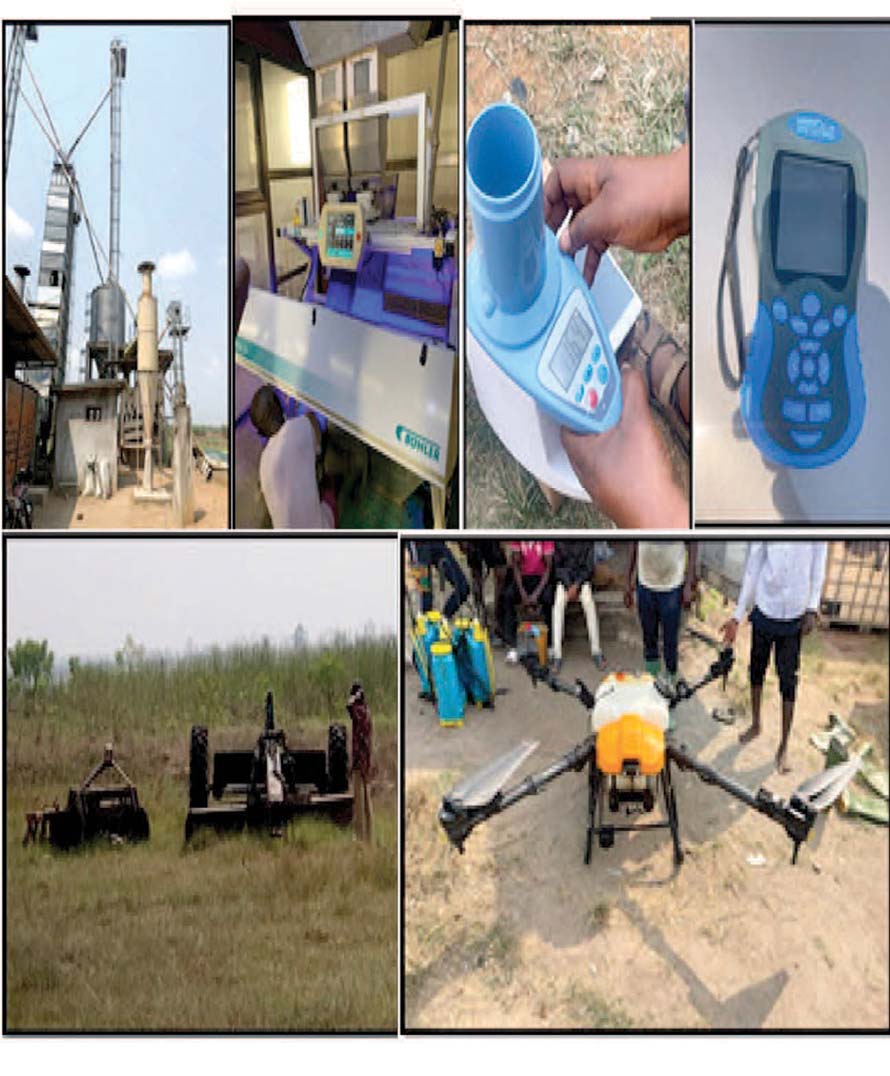EFUDTRIPI
Project Detail
The primary aim of the EFUDTRIPI project is to bolster policies that facilitate farmers’ access to and utilization of high-quality and reliable digital solutions.
- Collaborating institutions/partnership: Ministry of Food and Agriculture, (E-Agriculture Unit)
- Duration:24 Months
- Specific CSIR Thematic area:Food Security and Poverty Alleviation
- Funding source (donor):ICIPE
Participating scientists (with PI)
Specific Objective
The specific objectives include:
- Evaluating the utilization and impact of digital agricultural technologies and services on agricultural productivity, farmers’ incomes, and the incomes of ICT4Ag service providers.
- Identifying the obstacles hindering farmers’ adoption and advancement of digital agricultural services and technologies within the country.
- Assessing the quality and security of ICT4Ag services accessible to farmers.
- Offering recommendations for fostering innovation and creating a favourable environment to scale up the deployment and adoption of digital agricultural technologies and services for farmers and other stakeholders along the value chain within the country.
Expected Outcome
- Researchers will have a bettervunderstanding of farmers’ level of usage of ICTs and how they are impacting their operations.
- ICT4Ag Companies will know which of their services are being used as well as farmers’ perceptions and experiences with their use. This will inform the companies on the types of innovations necessary to improve the quality and security of the services, increase farmers’ uptake and increase the benefits for the farmers. Consequently, it will result in improved quality of services, increased access by farmers and better impacts on farmers’ operations including their income.
- Policy makers and regulatory institutions such as the Ministry of Food & Agriculture, Ministry of Communications and Digitalisation, Ministry of Fisheries and Aquaculture Development, Ministry of Environment, Science, Technology and Innovation, National Communication Authority, National Media Commission will use the evidence generated to reform or develop policies and programmes that will promote the development and uptake of better quality and more impactful digital solutions.
- Strong linkages will be established among researchers, ICT4Ag companies, farmers, policymakers and regulators.
Major Outcomes
Enhanced policy environment to support increased access by farmers to good quality and secured digital solutions, and increased productivity and income for farmers and ICT4Ag service developers and providers.
Impact on the Economy
This research seeks to assess the use, quality, security and impacts of digital solutions by farmers in the agricultural sector and identify factors that will increase uptake of the technologies for increased uptake of agribased digital technologies by farmers and SMEs. The project will engage with ICT4Ag service providers and policymakers and thus contribute to strengthening linkages between research communities, industry and policy actors in digital innovations in the region. Through the engagement with policymakers, some policy interventions will be identified, which will contribute to strengthening the policy environment for scaling agri-business digital innovations.
Major policy action needed
The ICT landscape in Ghana is driven by two policies, namely, the National Telecommunications Policy and the National ICT for Accelerated Development Policy (ICT4AD). The Ghana ICT for Accelerated Development Policy (ICT4AD) was launched in 2003 with the overall objective of engineering and ICT-led socioeconomic development process with the potential to transform Ghana into a middleincome, information-rich, knowledge-based, and technology-driven economy (Ghana Government, 2003). The strategic focus of the policy is to support the development of the ICT sector and industry, as well as the use of ICT as a broad-based enabler to facilitate socioeconomic activities. The policy emphasizes the development, deployment and exploitation of ICTs as engines for all sectors of the economy.






